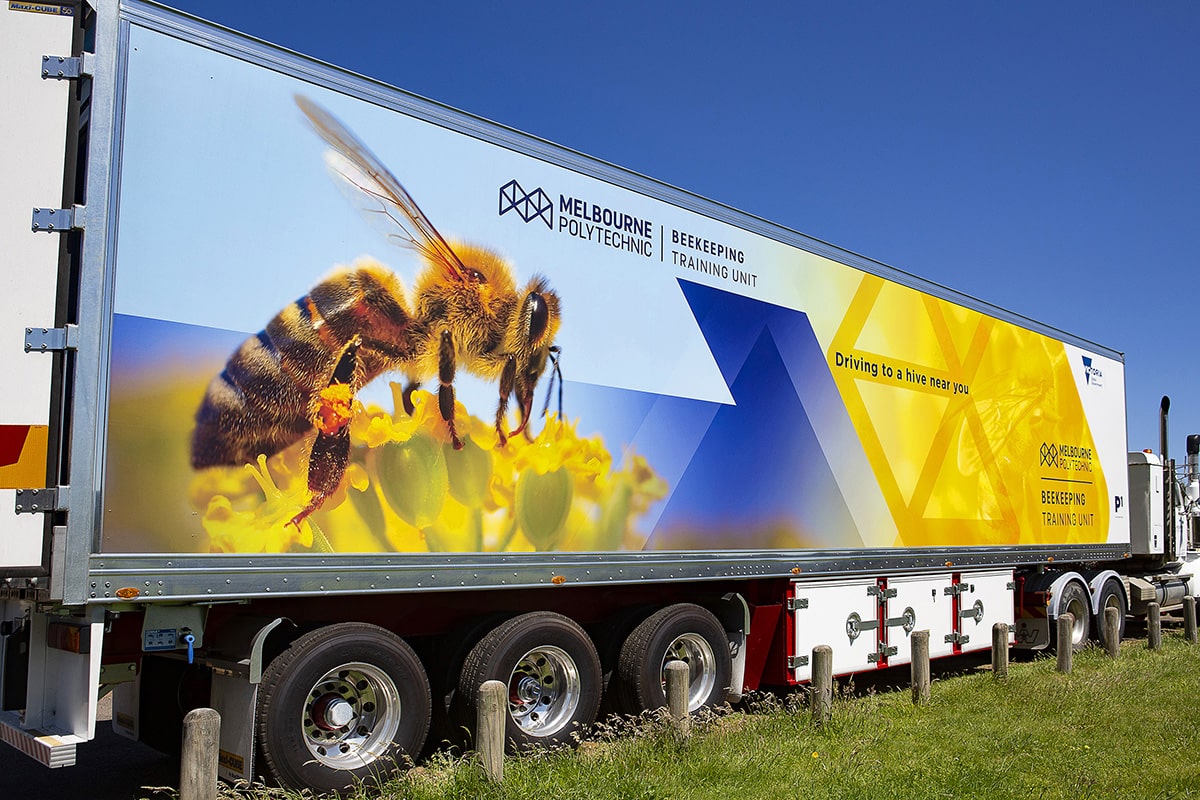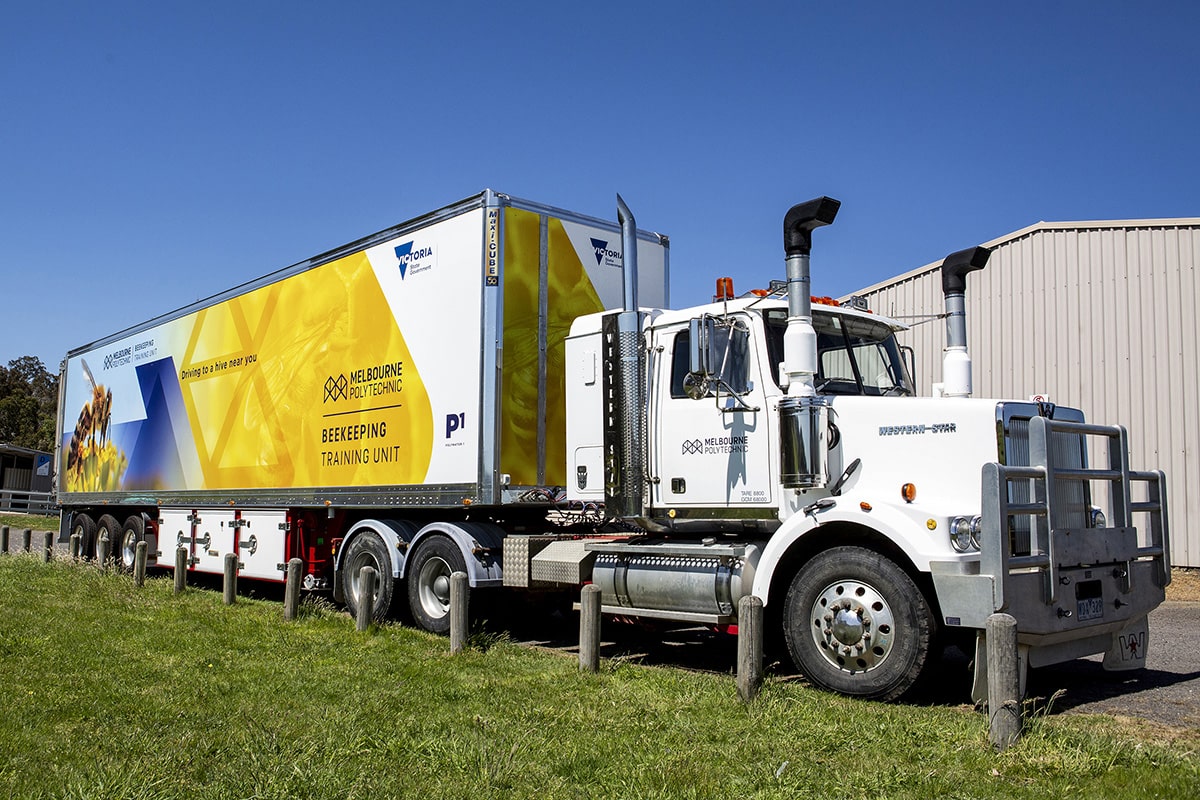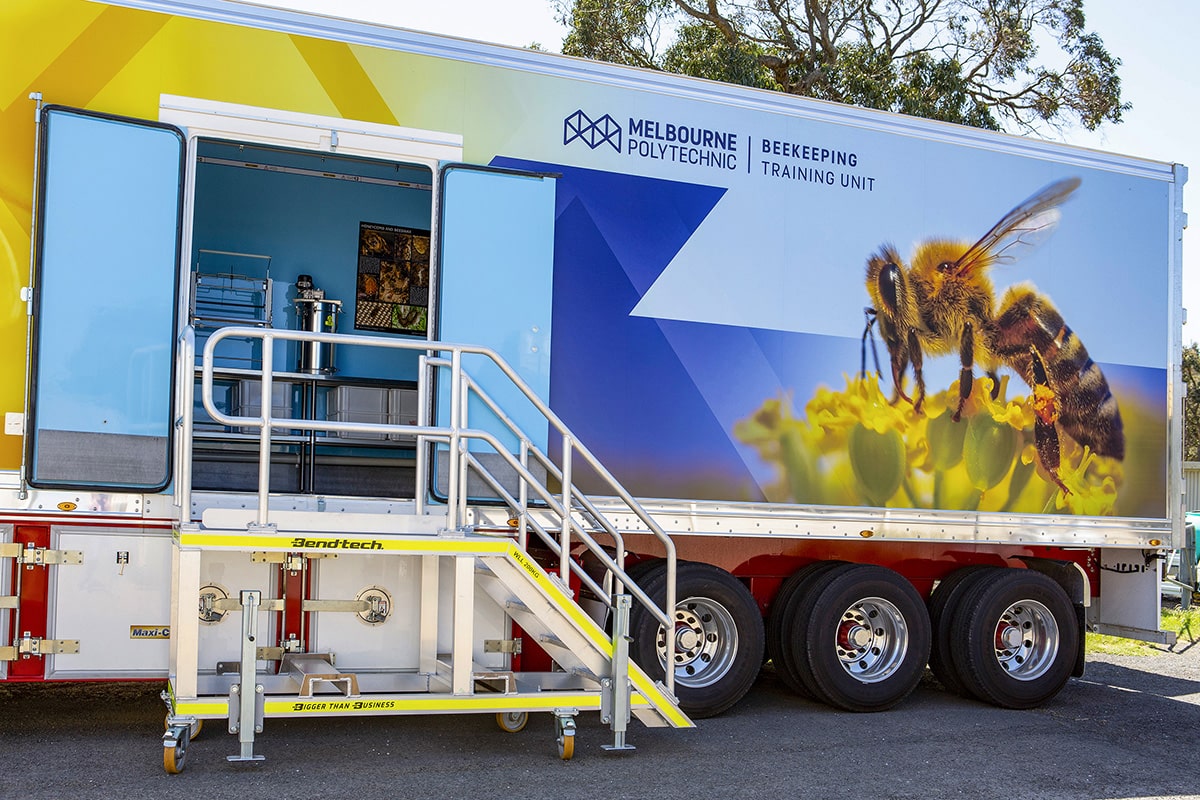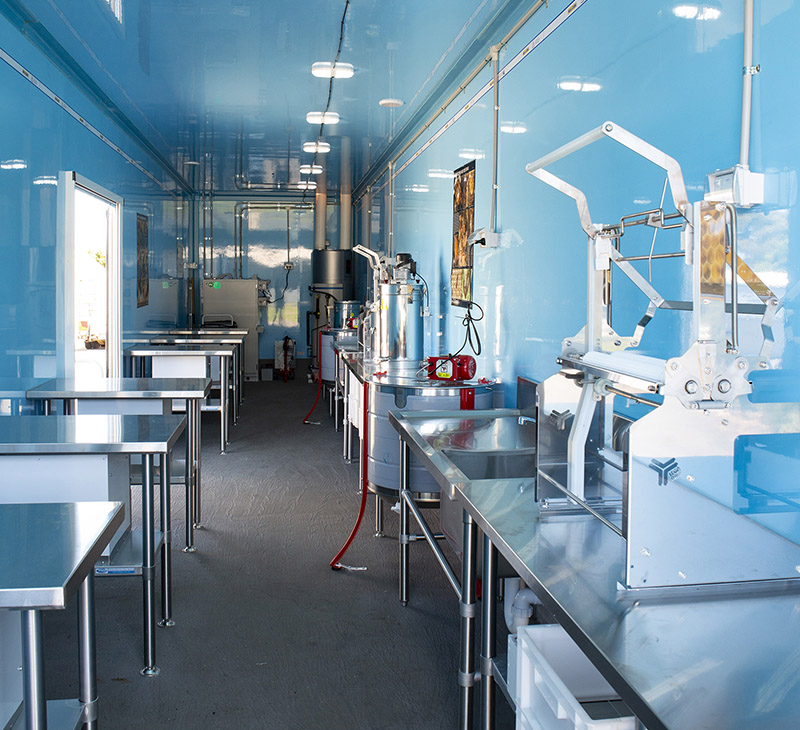Honey of a Trailer for Melbourne Polytechnic

Mixing beekeepers, buzzing bees, tutors, and students all swarming around the heart of the operation, a specially developed Maxi-CUBE Classic Dry Freight van, in the middle of Victorian bushland and you’d be excused for wondering what on earth is going on.
The Melbourne Polytechnic trailer is a demonstration of innovation, collaboration and flexibility in producing a special purpose trailer to be the classroom for budding Victorian Apiarists learning the trade of beekeeping and honey extraction - shifting the classroom to where the bees are working.
Melbourne Polytechnic is a prominent training provider in Victoria and is moving Vocational Education and Training (VET) courses into the future, quite literally on wheels. The Polytech traditionally offers a diverse range of courses from agriculture to engineering.
Coinciding with the Victorian pandemic shutdown, the institution identified a regional gap: the absence of a beekeeping course in Victoria, with the nearest option located in New South Wales.
To fill this need, James Farmer, a member of Melbourne Polytechnic's facilities and assets team, spearheaded the design and construction of a mobile classroom designed for teaching the craft of beekeeping.
Developed in partnership with MaxiTRANS, Australia’s leader in transport equipment solutions, this self-sufficient, off-grid trailer serves not just as a classroom but as a revolutionary model for practical, hands-on training. The classroom can travel throughout the state, offering flexibility and accessibility, making it a pioneer in vocational education.

James Farmer and the Melbourne Polytechnic team brainstormed how best to fill the vocational education void and the idea for the mobile classroom emerged from these discussions, anchored by the realisation that a roving educational platform could offer unprecedented accessibility and hands-on training opportunities for students scattered across Victoria.
The trailer had to be large enough to serve as a classroom while also adhering to road safety and transportation guidelines. James Farmer reached out to MaxiTRANS, experts in the field of trailer design and manufacture, and was met with enthusiasm and professional expertise.
MaxiTRANS directed the concept to Maxi-CUBE, leading supplier of the family of refrigerated and dry freight trailers. Maxi-CUBE engineers designed a dry freight model tailored to the classroom's specifications. The company provided 3D models through the development process to ensure the trailer met all of Melbourne Polytechnic's needs.
To make the trailer more functional and user-friendly, several features were added, including a fibreglass slip-free zircon floor, a side-access door, and underbody storage suitable for ladders and steps.

When the trailer came off the MaxiTRANS production line in Ballarat, the next phase involved customising it for its specific educational purpose which was done in collaboration with a local fit-out company.
Nine solar panels were installed on the roof, lying flat to comply with height and wind resistance restrictions. These panels power batteries built into the trailer, generating enough electricity to run the equivalent of two households. Beneath the batteries is a water storage unit, providing hot water essential for honey extraction and other tasks. The interior layout includes workbenches for hands-on training and sinks for preparation, making the space highly functional.

Mobility of the unit is provided by a Western Star prime mover, powered by a 550 horsepower Cat engine, allowing it to be moved easily across diverse terrains.
James Farmer explains, “There's two extractors in there, a warming cabinet, equipment to do repairs to boxes or create new boxes. They learn to rob hives, take the wax off them and run them through the extractors. There can be up to 20 students and they don’t all need to be in the trailer at the same time. They learn the whole process as they go through.”
Since its completion in April 2023, following a project timeline affected by the COVID-19 pandemic, Melbourne Polytechnic's mobile beekeeping classroom has buzzed into action in 2023 with immediate impact. The classroom hit the road for its inaugural beekeeping course in August, offering students a one-of-a-kind, practical learning experience that would have been impossible within the four walls of a traditional classroom. The early reception has been overwhelmingly positive, underscoring the success of this unique educational initiative.
The mobile beekeeping classroom serves as a case study in educational innovation with potential applications far beyond beekeeping. Given Melbourne Polytechnic's wide-ranging course offerings, from agriculture to engineering, the concept of a mobile, off-grid classroom could revolutionise how vocational courses are taught. Imagine mobile classrooms for courses in agriculture, horticulture, or even plumbing and locksmithing—fields that would greatly benefit from hands-on, on-site training. The scalability of this innovation is immense and it could serve as a model for similar programs across the country or even globally.
